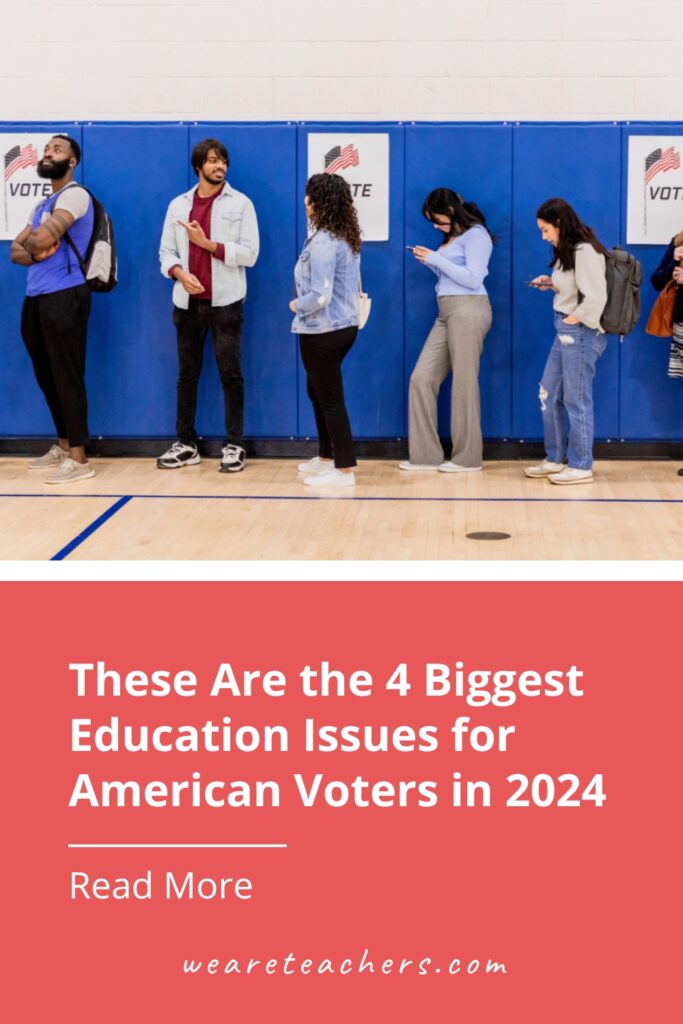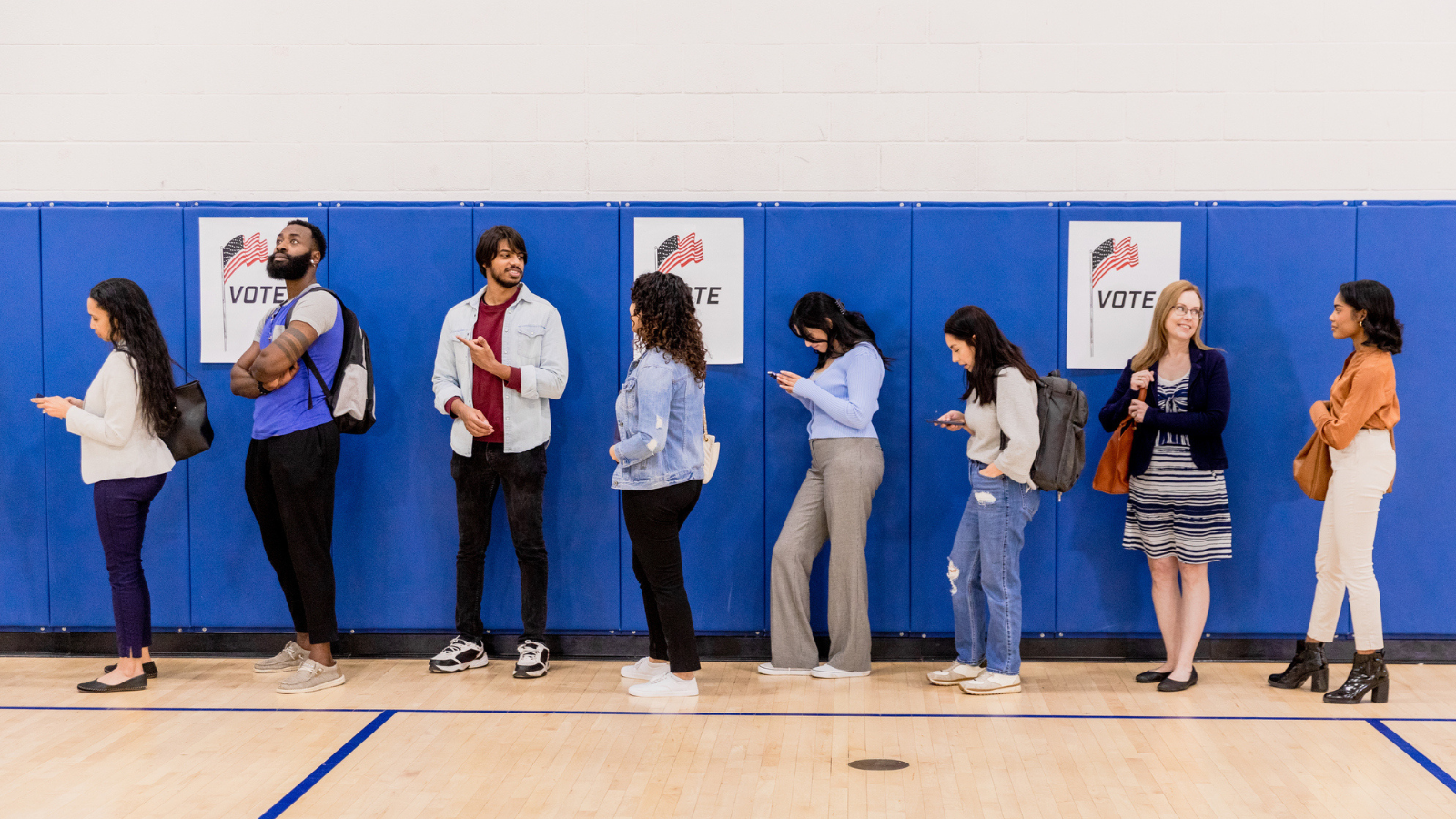It’s March in an election year, and the political heat is ramping up right along with springtime. The presidential primaries are already showing us what the biggest issues in education will be this year.
Critical Race Theory
While some states have banned critical race theory (CRT) in their curriculum, teachers in other states fight for freedom in what they teach. Former president Donald Trump criticizes how many educators choose to discuss race and gender and stated, “Across the country, we need to implement strict prohibitions on teaching inappropriate racial, sexual, and political material to America’s schoolchildren in any form whatsoever.” Trump plans to keep critical race theory as an issue in education, although the truth is more complicated.
Many schools do not teach CRT as it was meant for legislators and lawyers to understand the needs of underserved communities. Instead, it has become a scapegoat for discussing racism, equity, or gender. President Biden has focused on book bans, calling for diverse books and history. Biden argues that prohibitions on CRT restrict free speech and public education rather than protect students. Teachers may find more help in looking at banned books and celebrating diversity when discussing race and history in the classroom.
Charter vs. Public Schools
The call for privatizing education continues to be one of the biggest issues in education. This is a complicated issue and one we are likely to see in schools and in political debates. While some see it as a way to fix public education by making public schools “fight” with private schools for resources, others see it as a way to separate more affluent students from poorer students.
Former president Trump is calling to expand charter schools. His plan would promote “parents’ choice” by funding private schools over public ones.
Biden, however, wants to back local public schools with more money and programs. Biden’s plan focuses on “evidence-based practices” in education rather than funding private schools. The plan also calls for smaller class sizes, more support, and transparent data to improve schools.
“Parents’ Rights”
While some politicians argue for “parents’ rights,” others criticize the movement for harming LGBTQ+ youth. Others worry that “parents’ rights” could lead to abuse and neglect of LGBTQ+ kids as some of these bills require schools to inform parents if a child identifies as another gender or sexuality.
Trump supports “parents’ rights” and has vowed to sign the “Parents Bill of Rights Act.” The Parents Bill of Rights Act mandates parent-teacher conferences, complete lists of all books available to children, and disclosure of school spending. He argues that this would ensure parents know what their children are learning and that their tax dollars are spent wisely. This bill could easily become one of the biggest issues in education as it would mandate more work for teachers, librarians, and administration without additional budgeting.
President Biden, however, has come under attack for not supporting parental rights enough. When the Parents Bill of Rights was approved in March, he vetoed it as he felt it did not help parents enough. He also feared it would harm LGBTQ+ youth. Opponents of the bill feel that it gives too much power to Congress, ignores marginalized communities, and would devastate the public school system. Even a few House Republicans felt the Parents Bill of Rights went too far in dictating how states handled education.
Changing Measures of Success
Many students are still feeling the effects of the pandemic. Students are lagging behind their pre-pandemic peers in many subjects, and experts worry that today’s students may not catch up. Harvard and Stanford universities are working on the Education Recovery Scorecard to determine how individual districts recover from the pandemic. Stanford and Harvard hope parents and policymakers can use their research to determine which districts need the most help getting students back on track.
Amid these fears, some states have adopted a “Portrait of a Graduate” to guide the curriculum by defining what skills a student needs to succeed after high school. As part of these portraits, schools focus on competency-based learning and require students to demonstrate mastery of their skills rather than focusing on time in class. How to test for competency, however, remains a tough issue. While standardized tests have been the standard for decades, some policymakers debate whether these high-stakes tests allow students to show mastery. Others, however, cling to these tests on the belief they measure all students and schools equitably. They argue that these tests push standards higher and prepare students for adulthood. New York, Louisiana, and Florida are just three states currently debating on better ways to measure success, and we can only expect more states and even Congress to debate how to measure success best.
As we head to the polls …
As we head toward the presidential election, each candidate will continue to define what they determine to be the biggest issues in education. Trump has, so far, expressed a desire to expand charter schools, while Biden calls for a more robust educational system. States are trying to define what students should learn as they debate how to measure success and what history to teach.
We can expect our students to debate these issues as well, whether or not these discussions are invited into the classroom. If you are brave enough to discuss politics, check out this article. And if you would instead focus on helping students figure out if the facts they find are actual, check out this article.
For more articles like this, be sure to subscribe to our newsletters.


